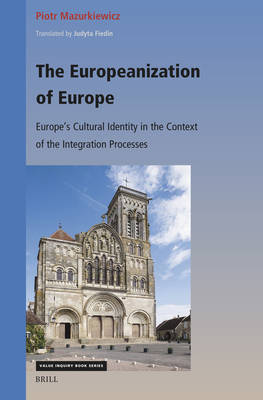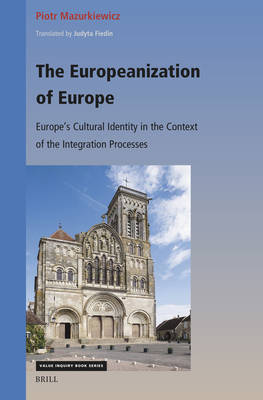
- Afhalen na 1 uur in een winkel met voorraad
- Gratis thuislevering in België vanaf € 30
- Ruim aanbod met 7 miljoen producten
- Afhalen na 1 uur in een winkel met voorraad
- Gratis thuislevering in België vanaf € 30
- Ruim aanbod met 7 miljoen producten
Zoeken
The Europeanization of Europe: Europe's Cultural Identity in the Context of the Integration Processes
Piotr Mazurkiewicz
€ 395,45
+ 790 punten
Omschrijving
A Bolivian, working in Warsaw for many years, decided to apply for Polish citizenship. He was asked only one question at the migration office: whether he ate sauerkraut hunters' stew and fermented dill cucumbers in brine. "You know," he said later, "for many years I was not able to swallow it, but recently I forced myself and was able to honestly answer 'yes'." Cuisine, no doubt, is one of the elements of national culture. The question, however, was not just about cuisine, but about belonging to a national community that this man found worthy of such a sacrifice. Europe is called "the continent of culture." In the book, Piotr Mazurkiewicz engages in a reflection on what constitutes the hard core of this culture which allows us to call ourselves Europeans.
Specificaties
Betrokkenen
- Auteur(s):
- Uitgeverij:
Inhoud
- Aantal bladzijden:
- 536
- Taal:
- Engels
- Reeks:
- Reeksnummer:
- nr. 408
Eigenschappen
- Productcode (EAN):
- 9789004727670
- Verschijningsdatum:
- 11/09/2025
- Uitvoering:
- Hardcover
- Formaat:
- Genaaid
- Afmetingen:
- 155 mm x 235 mm
- Gewicht:
- 916 g

Alleen bij Standaard Boekhandel
+ 790 punten op je klantenkaart van Standaard Boekhandel
Beoordelingen
We publiceren alleen reviews die voldoen aan de voorwaarden voor reviews. Bekijk onze voorwaarden voor reviews.








